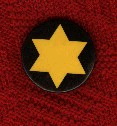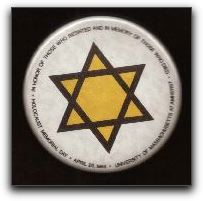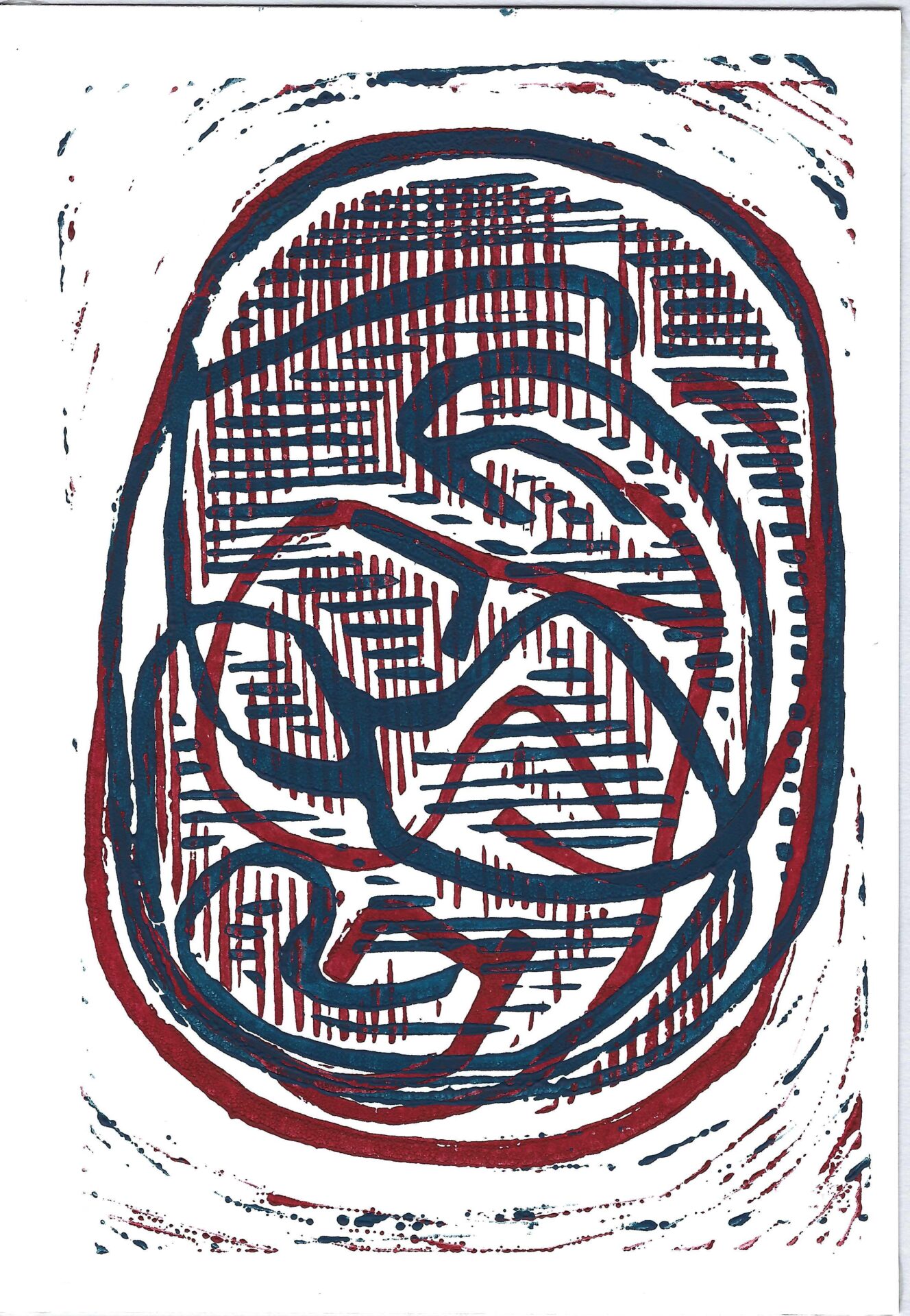In April of 1997 I wrote (as an aside) to a forum of colleagues:
I think every teenage Jewish child ought to have a week of Sho’a related nightmares. If we can reenact the Exodus and living in Sukkot, why not the Sho’a?
Only one person responded. However, that response was quite intense. I will not quote from that response, but paraphrase some of the exchange that ensued
My correspondent strongly disagreed with my suggestion that we “impose” Sho’a nightmares on children. Suggesting that it is one thing for an individual to make a conscious decision to engage in the particular painful exercise, and quite another to impose it on someone. My correspondent suggested that (while certain that I had not intended to convey such an idea) none of us are put on earth to create new nightmares or forms of abuse.
And so, I responded. Here is my thinking:
I decided in the early 1970s that each Jewish child should have a week’s worth of nightmares. Of course there is little that I can do to “enforce” this, but I can make experiences available that can enable them. I recall being at a Zionist youth movement camp in the mid ’60s and shown the movie “Night and Fog.” The film had graphic footage of the death camps. At home I had books my parents had brought into the house with still photos of the horrors. I had spent hours exploring these images.
I was older (about 20 years old) when I tried to get into the life of the boy with his hands up being led from the Ghetto. I spent months with him, I kept his image before me daily, his image turning a fiery red as the black closed in on him. [You know he didn’t die in the Sho’a!]
And I wore a lapel button with a yellow star in identification.

Of course this was all self imposed and voluntary. Did it scar me? I think not. Perhaps colleagues who know me could respond better.
I have not changed my mind. I still find nothing abusive in this.
A week during a lifetime is a brief span.
To imagine what it means or feels like to be a Jewish infant tossed into the ovens alive because the Nazis wanted to save the 0.5 cent the prior gassing would have cost.…
To imagine for a week what life was like for a teenager living through the Sho’a.…
This is not a terrible burden on a child. I know children who have nightmares from seeing a popular Hollywood movie, they all live through them. Do we prevent our teenagers from seeing such films because they might have nightmares afterward?
If my children can identify with these children of the Sho’a, learn from them and recognize the holy spark that exists in each person, regardless of age, gender, social standing, location in the world, I don’t think I’ve terrorized them horribly.
Again, the point I made was in context of experiencing (pardon my transliteration):
B’Chol Dor vaDor Chayav Adam Lirot et Atzmo K’Eelu Hu Yatzah miMitzrayim
and I add:
B’Chol Dor vaDor Chayav Adam Lirot et Atzmo K’Eelu Hu Yatzah miAuschwitz
In order to K’Eelu Yotze miMitzrayim we need to experience some of what Mitzrayim was.
On continually retelling the Sho’a… I remember an anecdote from Isaac Deutscher’s book “The Non-Jewish Jew” in which he wrote of a Melamed with bright red hair who sat at his desk. Every day all he did was tell of the crossing of the Red Sea. Each day the story was new as different details emerged from his telling. Each day the Kinder experienced the wonder of redemption.
Our correspondence continued with an examination of my quoted text.
Our rabbis tell us that in order to qualify as a Chacham we must take on the responsibility of seeing ourselves as if we had been liberated from Egypt and that if we deliberately exclude ourselves this makes one a rashah! My desire to have our teens experience the Sho’a in a similar way suggests that if they do not, the are r’shaim.
In addition we are not obligated to experience the specific horrors of slavery in Egypt but recognize that we are free from ultimate oppression.
Yet, in the Seder itself we do a number of things to remind us of what slavery must have been like. We dip karpas in salt water to remind us of the tears our ancestors shed. We eat the maror to remind us of the bitterness of slavery.
I had not written about what I felt I had gained from my “exercise” and my correspondent found that unfortunate, suggesting that when we speak of our own personal experience, we enable others to find a common thread and build on our ideas, or not. On the other hand, when we tell people what they should do, we encourage submission to our “suggestion” or that they defy us.
We speak of Yitziat Mitzrayim as a metaphor for the process of rebirth. Yet (according to my correspondent) we are not sufficiently far from the Sho’a to appreciate its metaphoric value. My correspondent suggests that we haven’t been able to metaphorize the Inquisition! (I’m not sure of that, I have read a variety of accounts that suggest that the Kabbalah of Tzfat is a metaphoric response to Grush Sfarad [The expulsion from Spain].)
It seems that I had gotten dangerously close to some very delicate issues. My suggestion that children have nightmares raised questions of why we have such concepts as harassment and abuse. Suggesting that some of us are more powerful than others, and that when the more powerful tell the less powerful that they should do something, they are imposing it.
OK, let’s take a step back and a deep breath.
I didn’t have the opportunity to discuss the Sho’a with the family. Too busy working out math problems, helping with practicing La Bamba, catching the last 20 or so minutes of the current sit-com, you know, the normal things of life. The things that the Sho’a prevented.
Can I impose? Yes: I impose a bedtime, I impose a dress code, I impose taking vitamins.…
But I wrote initially: “should” not “must”. Do I feel there is some kind of Mitzvah to experience the Sho’a? Yes, but that is a metaphor. And here is where I did not make myself clear.
I was asked:
When we say they should experience something, what do we mean?
Why should they experience these nightmares?
To be whole people? To be compassionate?
To be worthy of our attention?
To be good Jews? To be adult? To be decent?
To be clones of us?
To which I respond:
Why do we say that every Jew should consider him/herself as having been freed from slavery in Egypt?
So much of our texts harken back to the experience in Egypt as a source of lessons.
I don’t need clones. I often see aspects of myself in my children about which I feel uncomfortable… other aspects I enjoy. I know and love the fact that they will develop into independent adults taking the tools that my wife and I have made available to them and rework their lives and their world. My task as parent/adult (even rabbi in the greater sense as in with more than my children) is to make those tools available to the next generation (i.e. raise up many disciples).
I have never described how I benefited from my exercise of identifying with the boy in the photograph.
How have I benefited? First, nothing appears here on this WWW site other than attempts to celebrate the lives of the communities destroyed by the Sho’a and liturgies that heighten our awareness of the Sho’a in the hope that we might incorporate this aspect of our people’s experience into our lives as we did the experience of Slavery in Egypt.
Beyond this I’m afraid I cannot point to anything tangible.
Perhaps someone with keener insight into me as a person would know. It is hard for me to know. The only me I am is the one who has lived this way. What would I have been like had I not done these “exercises”?

| Date: | April 26, 1984 |
| Size: | ? |
| Pin Form: | safety |
| Print Method: | celluloid |
| Text (along edge): |
IN HONOR OF THOSE WHO RESISTED AND IN MEMORY OF THOSE WHO DIED • HOLOCAUST MEMORIAL DAY • APRIL 26, 1984 • UNIVERSITY OF MASSACHUSETTS AT AMHERST |
© Mark Hurvitz
[updated & modified] Originally Posted June 2, 1999
![]()


